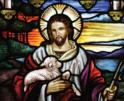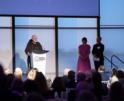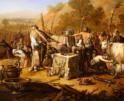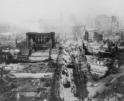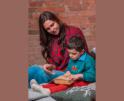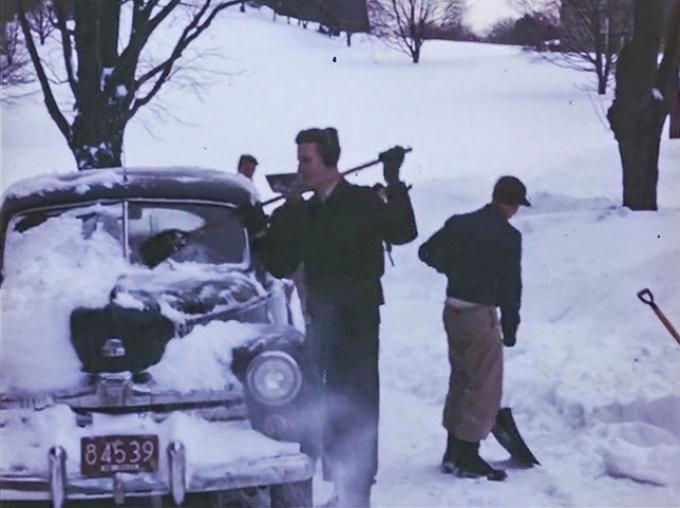
Culture

It has been suggested that at some point within the coming years there may not be enough knowledge or working equipment to successfully view these items in their original format, and so our team decided to take action before it is too late.
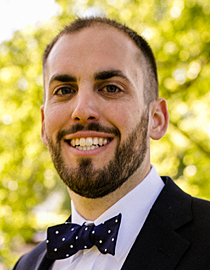
Zanghi
The Archive Department is excited to announce the availability of a free online media library featuring select audio, moving images, and still photographs from its collections.
Current moving image content dates from the 1930s and derives from our reel-to-reel film collection. The collection contains about 130 reels, of which over 30 are currently available to view. We are very grateful for the assistance of Northeast Historic Film of Bucksport, Maine and Gamma Ray Digital of Newton. With their help, we have been able to repair, clean, and digitize film which has not been seen for decades.
St. John's Seminary, located in Brighton, features prominently in the films that are currently available online. Much of the seminary films date to circa the 1940s, and they give insight into what it was like to be a seminarian at the time. Masses, ordinations, and prayer services appear, as do lectures and classes, but recreation and leisure activities also feature prominently. In color and black-and-white, we see seminarians playing hockey on Chandler Pond, baseball on the seminary grounds, and swimming and boating at St. John's Seminary Camp in Meredith, New Hampshire. Seminarians prank each other, get into intense snowball fights, and goof off in front of the camera. In contrast to the stiff, often solemn, photos we see from this time period, on film, the seminarians become real people, who have both moments of reverence and moments of levity.
Other notable films now available to view include footage of the archdiocesan pilgrimage to Rome and Lourdes in 1958, Pope John Paul II's 1979 visit to Boston, and a charming parish carnival from St. Mary of the Hills in Milton, circa 1938. Also included is a film of the 1963 National CYO Convention in New York City, in which President John F. Kennedy makes a surprise visit to the convention and delivers one of the final speeches of his life, just one week before his assassination.
The media collection also contains a number of audio files, organized by the type of original media: cassette, grooved (ex. Vinyl record) and open reel. Audiocassettes, approximately 600 in all, are being digitized in-house while the small number of materials in the remaining two formats have all been digitized with the help of the Northeast Document Conservation Center of Andover.
Favorites in the audio collection are recordings of Cardinal Cushing saying the rosary, the requiem Mass for John F. Kennedy at the Cathedral of the Holy Cross, and oral history interviews about the history of the Archdiocese of Boston and Missionary Society of St. James the Apostle.
In addition to audio and video, the media library also features some photograph collections based on exhibits the archive has recently created for staff at the Archdiocesan Pastoral Center. Photograph collections are arranged by theme, and currently include "summer fun" and baseball.
In our last column, we mentioned that we often hear the question "Why don't you just digitize everything?" and proceeded to outline the challenges and risks associated with doing so. In this instance, many of the formats present unique challenges in terms of the storage conditions necessary to arrest deterioration. Amongst our staff there was also a lack of knowledge, experience, and equipment to properly repair, clean and safely access these materials. All this considered, it was determined that migrating them to a new format, digital, was the best option to preserve their contents and to provide access to the public.
Digitization presents a solution to our current issues and allows us to access this long since viewed or listened to material. In keeping with best practices, we will continue to preserve everything in its original format so that should technology advance and we can extract a higher-quality copy, it will be available to do so.
Why are we doing this now? The knowledge to work with these materials, as well as functioning equipment to access them, is fast disappearing. It has been suggested that at some point within the coming years there may not be enough knowledge or working equipment to successfully view these items in their original format, and so our team decided to take action before it is too late.
Looking ahead, we will continue to add to the moving image, audio, and photograph collections on a rolling basis. We also hope to make other improvements to the media library, such as enhancing its browsability, and perhaps syncing it to our collections catalog so the items can be searched and accessed from one location.
Those who are interested can visit the media library at the following link: bostoncatholicarchive.starter1ua.preservica.com.
Readers can also find the link and other content on our website, BostonCatholic.org/archives, and see clips from the collections on our Instagram and Facebook, both @BostonCatholicArchive.
THOMAS LESTER, VIOLET HURST, AND JOY ZANGHI ARE STAFF MEMBERS OF THE ARCHIVES DEPARTMENT OF THE ARCHDIOCESE OF BOSTON.
- Thomas Lester is the archivist of the Archdiocese of Boston.
Recent articles in the Culture & Events section
-
The example of the Good ShepherdMichael Reardon
-
Spring Celebration Gala will honor Cardinal O'MalleyShannon Lyons
-
Scripture Reflection for April 28, 2024, Fifth Sunday of EasterDeacon Greg Kandra
-
Boston and the nation respond to the San Francisco Earthquake of 1906Thomas Lester
-
See you in the storyLaura Kelly Fanucci

